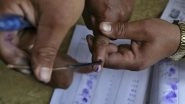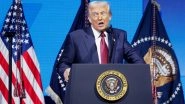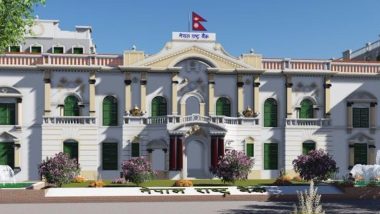Kathmandu, April 10: Nepal's central bank has instructed the country's commercial banks not to issue new letters of credit for the import of vehicles and other non-essential goods amid dwindling foreign exchange reserves.
"We told the top officers of the commercial banks to stop issuing letters of credit for the import of vehicles and other goods which they consider as non-essential goods," Prakash Kumar Shrestha, chief of the economic research department at Nepal Rastra Bank, told Xinhua news agency.
"We must preserve the foreign exchange reserves to finance essential goods such as medicines, instead of spending them on luxury goods in time of crisis," he added.
Since the early months of the current fiscal year that began in mid-July 2021, Nepal has seen its forex reserves continue to fall due to surging imports, declining inflows of remittance and meagre earnings from tourism and exports.
By mid-February, the country's gross forex reserves had decreased 17 per cent to $9.75 billion from $11.75 billion in July 2021, according to central bank figures. The forex reserves are now only enough to sustain the import of goods and services for 6.7 months, below the central bank's target for at least seven months.
Rising imports amid falling forex earnings have also contributed to a record-high balance of payment deficit, sparking concerns about the country heading toward the direction of Sri Lanka.
Nepal had a balance of payment deficit of $2.07 billion in the first seven months of the current fiscal year, as against a surplus of $817.6 million during the same period in the previous fiscal year, according to the central bank. The central bank has issued a directive as other indirect measures had failed to cut imports significantly. French Presidential Election 2022: Voting Underway to Elect The Next President of France.
The central bank "clearly asked us not to open letters of credit for non-essential goods including vehicles, and we're going to follow the instruction", Ashoke Rana, chief executive officer of the Himalayan Bank, told Xinhua.
"They told us that discouraging the import of vehicles would also contribute to a decreasing consumption of fuel," he said. As in other countries, fuel prices in Nepal have gone up over the Russia-Ukraine war and other factors.
Vehicles and spare parts are among the largest import items in Nepal. During the first eight months of the current fiscal year, the South Asian country imported vehicles and spare parts worth $626 million, according to the Trade and Export Promotion Centre.
(The above story first appeared on LatestLY on Apr 10, 2022 01:06 PM IST. For more news and updates on politics, world, sports, entertainment and lifestyle, log on to our website latestly.com).













 Quickly
Quickly


